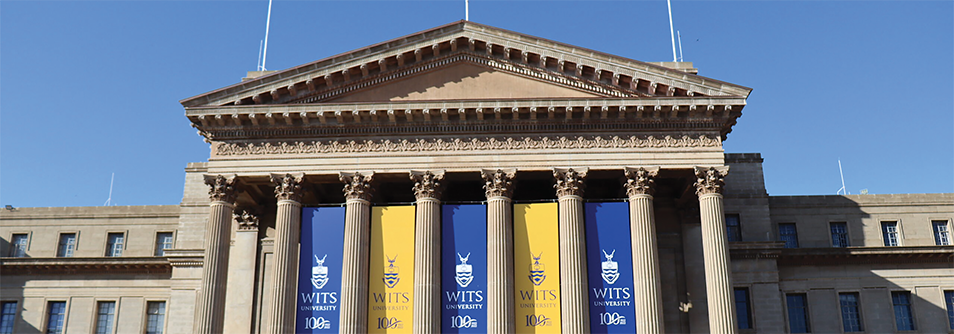CONTROL: How systemic barriers rooted in colonial legacies continue to marginalise black students..
By Siviwe Mafuna
Ngũgĩ wa Thiong’o’s assertion that “colonialism imposed its control of the social production of wealth through military conquest and subsequent political dictatorship. But its most important area of domination was the mental universe of the colonised” offers a powerful framework for understanding contemporary student activism at the University of the Witwatersrand (Wits).
The 2025 hunger strike and the subsequent “Umqolo Uvelile” protest emerge as living examples of this ongoing mental colonisation, particularly in the context of financial exclusion in higher education.
These events expose how systemic barriers rooted in colonial legacies continue to marginalise black students, denying them not only access to education but also dignity and full participation in academic life.
We must not overlook the role of political leadership those who govern as though still in service of the coloniser, maintaining their influence from the grave. This betrayal of liberation ideals only deepens the crisis.
Wits management when talking to Wits Vuvuzela publication said that it “cannot erase all
historic student debt fund” without risking bankruptcy. That is a diabolical statement because nobody asked them to do that – the protest was about access, allowing students to register because the debt is theirs.
What Wits University is saying is tantamount to gaslighting and case in point is that when you are financially excluded you are then poorer than when you arrived at Wits because the debt is yours but you are without the qualification.
Ngũgĩ emphasizes that colonialism’s most enduring legacy lies in its psychological impact, how it shapes the colonized people’s self-perception and their sense of place in the world.
Though South Africa experiences a political transition after apartheid, structural inequalities persist, particularly in education. At Wits, policies requiring students to settle large historical debts in order to register continue to exclude those from historically disadvantaged communities.
Of course, reminiscent of the apartheid regime. Lest we forget, according to the 2023 Wits University, the institution has over R5 billion in reserves found on their website. What is that money for? Lining greedy pockets of those in charge?
The poverty of Africans in South Africa can be attributed to apartheid therefore it is not the fault of black South Africans that they are black African and poor, where must they get this money to settle Wits’ historic debt? Wits is a public institution; it must be treated as such, not a private company for white wealthy men.
Maybe we must consider having a forensic investigation on how these reserves are spent but what we can deduce is that it’s not benefiting the most important stake holder in the institution which is the student.
Not even infrastructure development can triumph registering students, especially the dispossessed African students. These policies send a clear, albeit subtle, message: only those who can afford to pay truly belong at the institution. In other words, poor black Africans are implicitly told they do not belong, an echo of apartheid-era segregation and elitism.
Financial exclusion becomes more than a bureaucratic rule; it becomes a tool for reinforcing a sense of inferiority and economic dispossession. This dynamic reflects Ngũgĩ’s warning that colonialism continues to live in the mind, limiting how the formerly colonised view their worth and future.
This unfortunate situation in by design and in the context of South Africa Hendrik Verwoerd is one of the leading architect of apartheid and they even named him the father of apartheid,
Wits University takes the leaf from his book – when he says: “When I have control over native education, I will reform it so that Natives will be taught from childhood to realise that equality with Europeans is not for them, and that they should not receive a university training which is not in keeping with the kind of work open to them.”
We should remember until apartheid was declared a crime against humanity the policies of apartheid were legal and lawful.
Wits University must remember that private policy does not triumph public policy and the constitution remains the suprime source of law in South Africa. There are two rights enshrined in the constitution that Wits University as a public institution disregard because of its Verwoedtism, that is section 9 equality and section 29 right to education.
In early 2025, Wits students launched a hunger strike to protest the university’s exclusionary registration policy, which bars students with debts over R10,000 unless they can pay at least half the amount owed.
This policy disproportionately affects Black and working-class students, reinforcing patterns of inequality and reflecting Ngũgĩ wa Thiong’o’s critique of exclusion and psychological domination. Ngũgĩ argues that colonialism’s most damaging impact went beyond the theft of land and resources to the deliberate estrangement of African people from their own identity achieved through control over language, culture, and consciousness.
Today, this legacy persists in the financial exclusion faced by poor black African students in universities, where steep fees and threats of deregistration or eviction serve as modern forms of colonial marginalisation.
Even when students gain access to these institutions, they often remain outsiders, compelled to buy their place in spaces shaped by Eurocentric knowledge systems that routinely ignore or devalue their histories. For example, gaslighting our experience with apartheid as natives of this country, our poverty is the legacy of apartheid.
As Ngũgĩ observes: “The effect of a cultural bomb is to annihilate a people’s belief in their names, in their languages, in their environment, in their heritage of struggle, in their unity, in their capacities and ultimately in themselves.”
Financial exclusion becomes part of this cultural bomb – undermining confidence, eroding belonging, and sustaining the hierarchies of worth established under colonial rule. The hunger strikers frame their protest not just as a demand for access, but as a fight for dignity. One of the conveners of the hunger strike Siviwe Mafuna laments that, “we are prepared to die in front of this cruel institution,” a statement that captures the emotional weight and symbolic power of the protest.
These students are not merely resisting financial policy; they are confronting the deeper, dehumanizing structures embedded in the university’s very foundations. In doing so, they begin to reclaim their agency and their right to exist, learn, and thrive within the academic space and formerly white only institutions.
Following the hunger strike, the “Umqolo Uvelile” protest emerges as a broader and more coordinated movement. Led by the Wits Hunger Strike Solidarity Committee, it demands that all students be allowed to register, regardless of their historic debt.
The name of the protest “Umqolo Uvelile” symbolizes visibility, vulnerability, and resistance. It says clearly: “Our backs are exposed by this cruel system administered by our own kin, who now serve the interests of the oppressor.” This betrayal is not surprising.
Capitalism survives by promoting a culture of crass materialism, and many of our leaders have become brazen in their complicity, across all sectors of society. In this context, Wits’ move – to raise the debt threshold for registration from R120,000 to R150,000 is rejected by students as merely cosmetic.
The demand is for genuine transformation, not symbolic gestures. Students insist that no student should be excluded because of financial hardship. The protests at Wits are about more than just access; they are part of a broader effort to reclaim the mental and cultural space that Ngũgĩ writes about.
By resisting exclusionary policies, students assert their place within academia and challenge the internalised belief that they are unworthy of success and education. Their activism directly confronts the mental colonisation that still shapes South Africa’s institutions.
One of the organisers of the hunger strike, Feziwe Ndwayana, puts it succinctly: “universities are a microcosm of society”. What we are seeing at Wits is not unique to this campus, there is pervasive systemic violence in South Africa directed against the native people of this country.
The exclusion of natives from the mainstream economy is by design and remains an apartheid legacy. Verwoerd is smiling in his grave. Through the Wits Hunger Strike and Umqolo Uvelile, students engage in a powerful act of decolonization. They do not merely call for policy revisions, they demand a shift in how universities and the broader society value black lives, dreams, and contributions.
Their struggle is a bold declaration of identity, dignity, and intellectual belonging, aimed at breaking the psychological chains imposed by the legacy colonialism and apartheid.
It is worth noting that the Wits Hunger Strike Solidarity Committee is still awaiting a response to its public letter of February 15, 2025 addressed to the Minister of Higher Education, calling for immediate intervention in the ongoing crisis at Wits University.
• Mafuna is a postgraduate student at Wits University and one of the leading organisers of the Wits hunger strike, a collective action against financial exclusion.


































